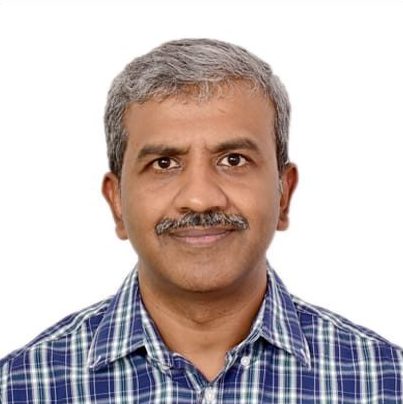Dr. Murali Krishna
Senior Clinician Scientist

Biosketch
Dr Murali Krishna is UK trained psychiatrist with expertise in conducting mental health studies in low-and middle-income countries (LMICs). He investigates life-course determinants of brain health across birth cohorts and several population-based life-course epidemiology studies in urban and rural areas in India. His lab was the first in a LMIC setting to examine early life determinants of healthy aging and extend the DOHaD (Developmental Origins of Health and Disease) science to dementias in late life. His transdisciplinary collaborations have resulted in cohorts enriched with genetic, molecular and environmental data. These cohorts as constituent studies of several global consortia contribute to ‘big data’ providing unique opportunities for transcultural and global comparisons of healthy aging. He supports a wide range of NGOs and community organisations that provide clinical care for older adults with dementia. He was awarded the Global Brain Health Fellowship from the Global Brain Health Institute (GBHI), Dublin.
Projects
Life course approaches to cognitive aging in India: He is leading the life course epidemiology studies of mental health and cognitive aging in India by follow up of several birth cohorts and population-based cohorts. His team is carrying out several systematic reviews that explore the influence of risk factors across the life course on cognitive function and depression in late life. He is also generating population based normative values for different domains of cognitive function for Indian population.
Development and validation of instruments for dementia research in LMICs: He has a great interest in development, cultural adaptation and validation of research instruments for conducting epidemiological studies and evaluation of appropriateness of outcome measures in dementia intervention studies in LMICS. He is examining the feasibility of implementation a brief computerised mental health assessment tool called Global Mental Health Assessment Tool (GMHAT) and mobile application for use by non-specialists for diagnosis of dementia in Primary Health Care settings. In addition, there is on-going cultural adaptation and ecological validation studies of cognitive assessments in south India.
Machine Learning, Artificial intelligence and Dementia: He is part of a multidisciplinary team that has successfully applied AI methods like machine learning to develop diagnostic algorithms for predication of dementia in south India and is utilising the birth cohort data to develop neural learning network framework for diagnosis of depression.
Environment and Brain Aging: He is exploring how natural and built environment influences healthy ageing. He is part of a transdisciplinary team that is developing novel methods for measuring the impact of environmental attributes like green and blue spaces, air pollutants and noise levels on aging in urban spaces in India. Liveware complemented by on-going qualitative studies exploring ‘lived experiences’ of older adults in large metropolitan cities in relation how neighbourhoods support and green spaces promote active ageing.
People:
Dr Murali Krishna works alongside Dr Thomas and Dr Jonas who are lead clinicians of the TLSA and SANSCOG cohorts at CBR
Gowri S M, Antonisamy B, Krishna M, Krishnaveni GV, Vasan S, Osmond C, Fall C. Impact of life-course growth and cumulative burden of cardiovascular disease risk factors on mid-life cognition in the Vellore birth cohort. Welcome Open Res 2024, 9:511
Kashyap R, Holla B, Bhattacharjee S, Sharma E, Mehta UM, Vaidya N, Bharath RD, Murthy P, Basu D, Nanjayya SB, Singh RL, Lourembam R, Chakrabarti A, Kartik K, Kalyanram K, Kumaran K, Krishnaveni G, Krishna M, Kuriyan R, Kurpad SS, Desrivieres S, Purushottam M, Barker G, Orfanos DP, Hickman M, Heron J, Toledano M, Schumann G, Benegal V; Consortium on Vulnerability to Externalizing Disorders and Addictions (cVEDA). Childhood adversities characterize the heterogeneity in the brain pattern of individuals during neurodevelopment. Psychol Med. 2024 Jul;54(10):2599-2611.
Krishna M, Bharath DU, Nagaraj S, Padakudru A, Krishnaveni GV, Kumaran K, Karart P, Prince M, Fall CHD A lifecourse approach to the relationship between lung function and cognition function in late life: Findings from the Mysore studies of Natal effect on Ageing and Health (MYNAH) in South India. Wellcome Open 2022; 7 (25), 25.
Krishna M, Krishnaveni GV, Sargur V, et al. Size at birth, lifecourse factors, and cognitive function in late life: findings from the MYsore study of Natal effects on Ageing and Health (MYNAH) cohort in South India. Int Psychogeriatr. 2021 Oct 20:1-14.
Holla B, Taylor PA, Glen DR, Lee JA, Vaidya N, Mehta UM, Venkatasubramanian G, Pal PK, Saini J, Rao NP, Ahuja CK, Kuriyan R, Krishna M, Basu D, Kalyanram K, Chakrabarti A, Orfanos DP, Barker GJ, Cox RW, Schumann G, Bharath RD, Benegal V. A series of five population-specific Indian brain templates and atlases spanning ages 6-60 years. Hum Brain Mapp. 2020 Dec 15;41(18):5164-5175.
Mahesh PA, Lokesh KS, Madhivanan P, Chaya SK, Jayaraj BS, Ganguly K, Krishna M. The Mysuru stUdies of Determinants of Health in Rural Adults (MUDHRA), India. Epidemiol Health. 2018 Jun 23;40:e2018027.
Krishna M, Beulah E, Jones S, Sundarachari R, A S, Kumaran K, Karat SC, Copeland JR, Prince M, Fall C. Cognitive function and disability in late life: an ecological validation of the 10/66 battery of cognitive tests among community-dwelling older adults in South India. Int J Geriatr Psychiatry. 2016 Aug;31(8):879-91.
Krishna M, Kalyanaraman K, Veena SR, Krishanveni GV, Karat SC, Cox V, Coakley P, Nagaraj K, Stein C, Paul B, Prince M, Osmond C, Fall CH. Cohort Profile: The 1934-66 Mysore Birth Records Cohort in South India. Int J Epidemiol. 2015 Dec;44(6):1833-41.
